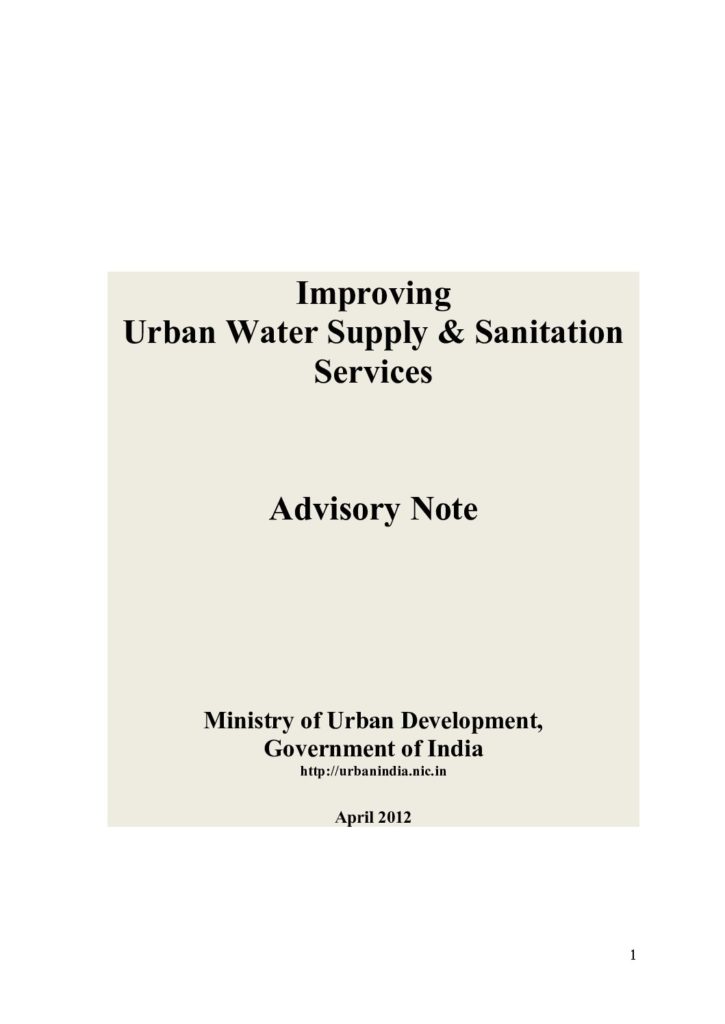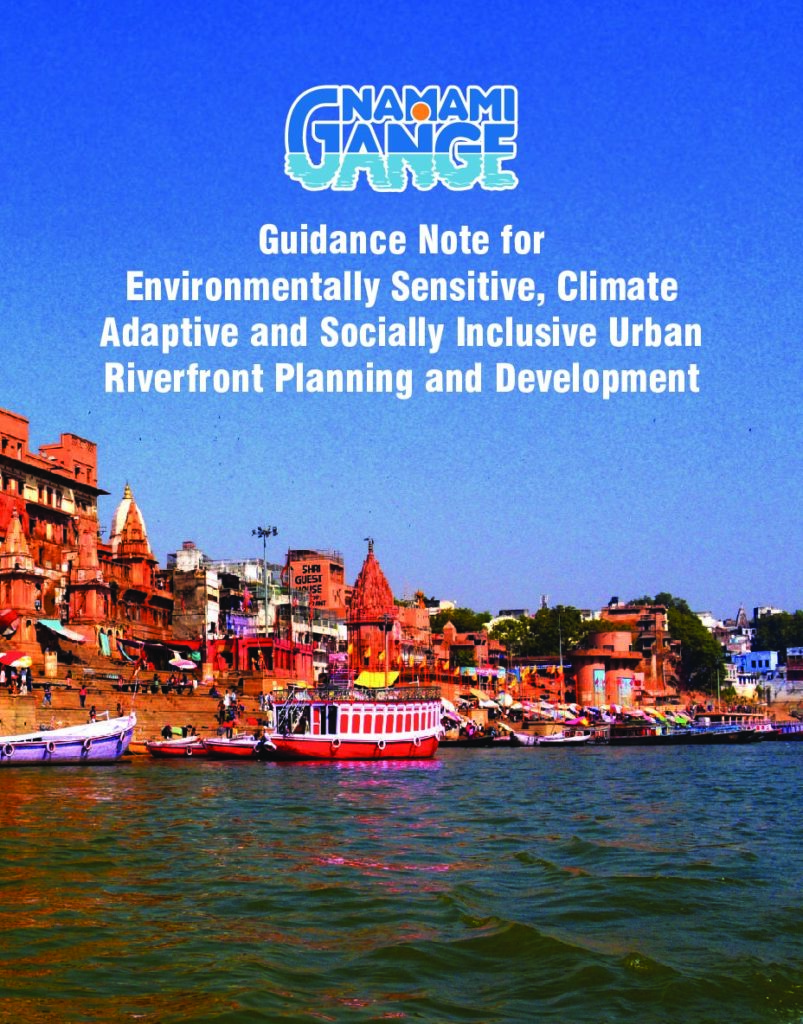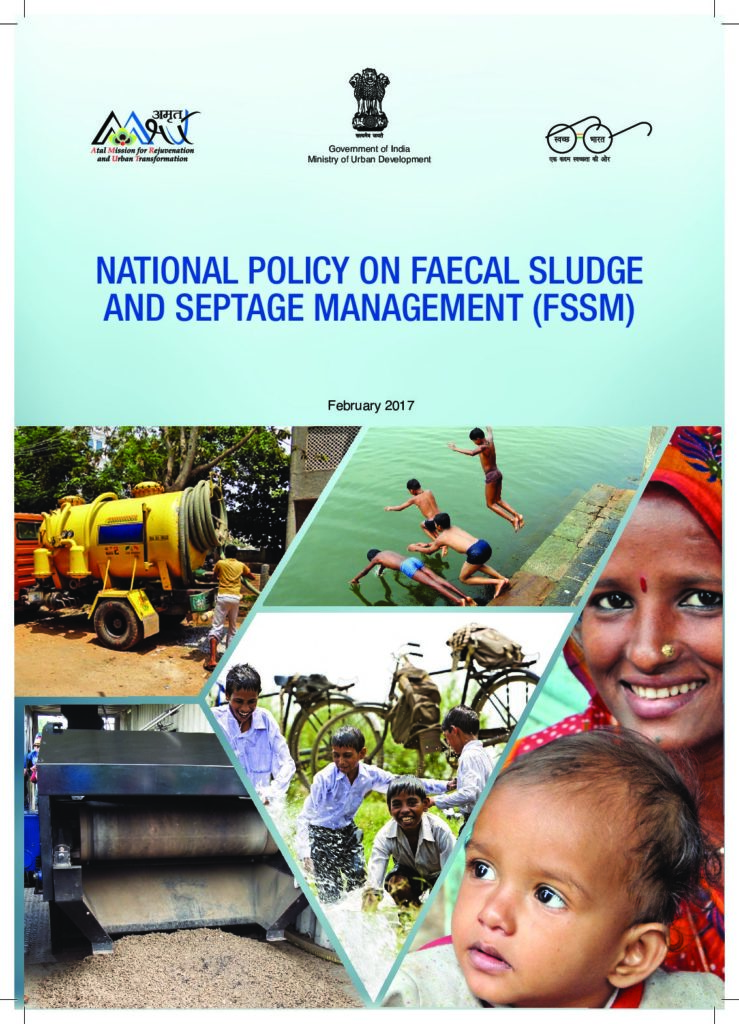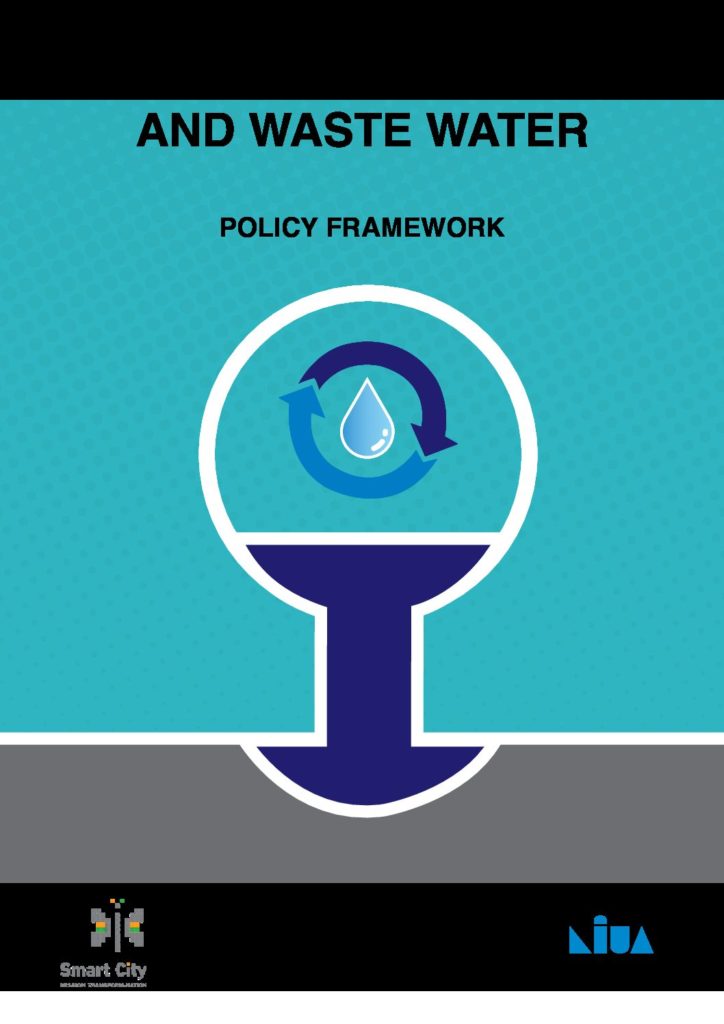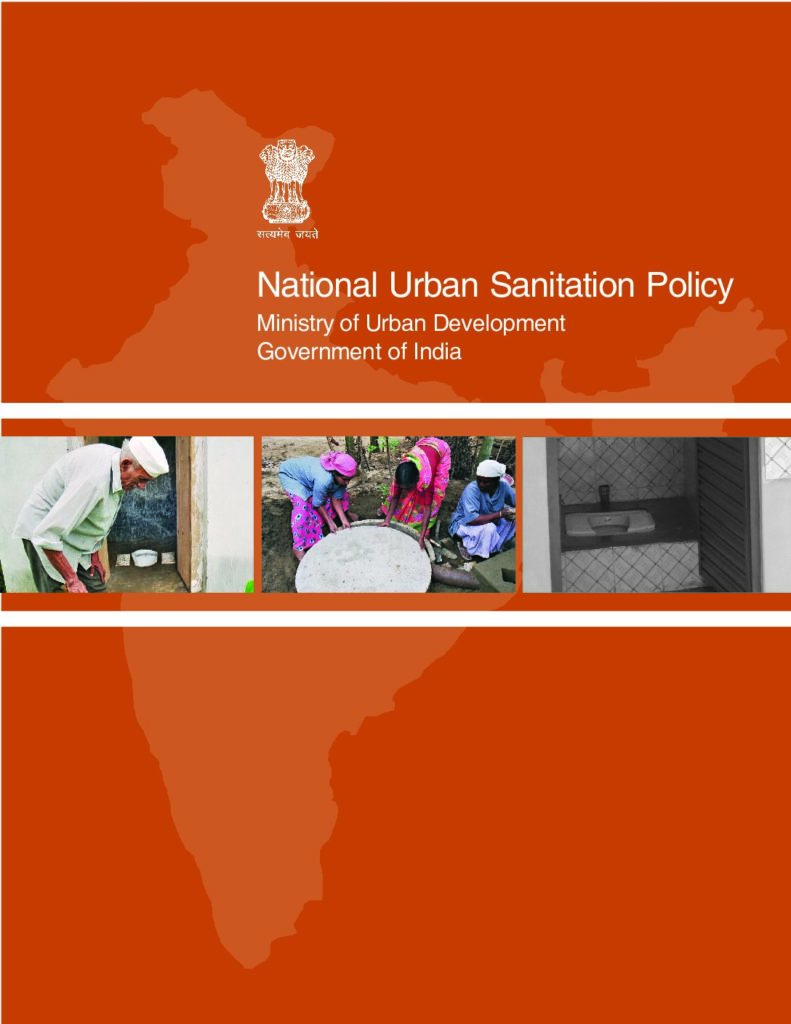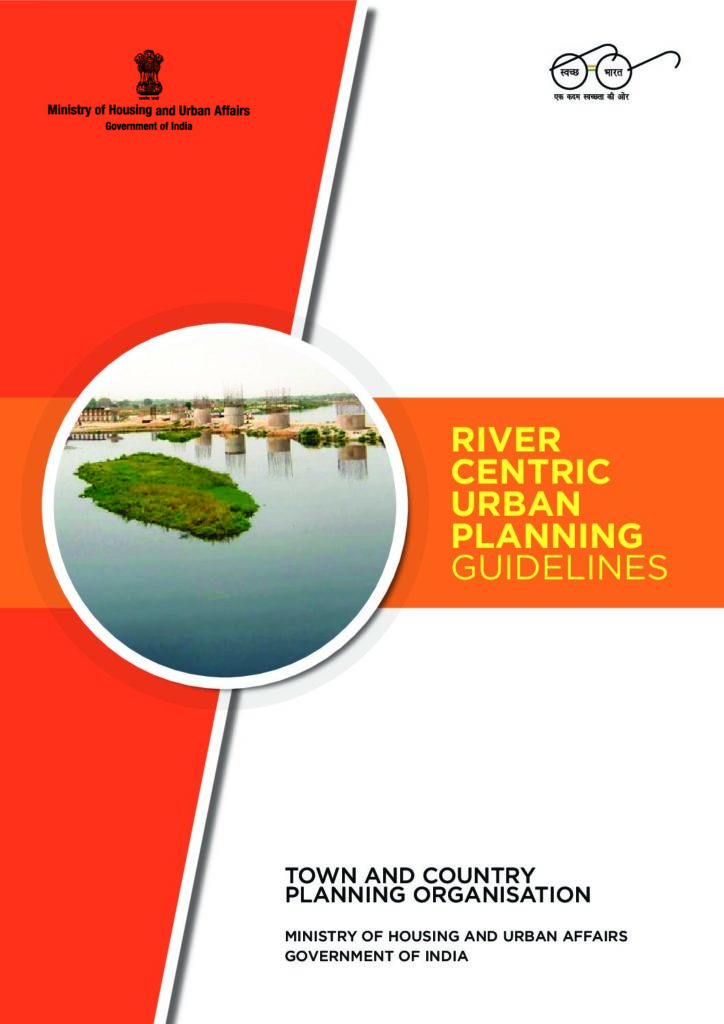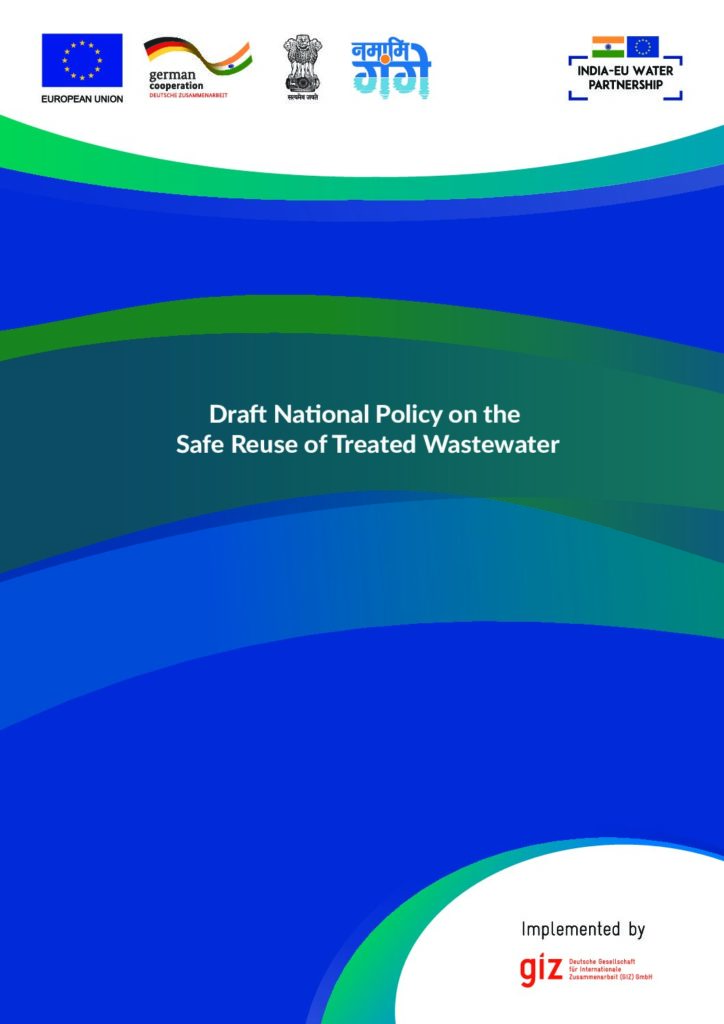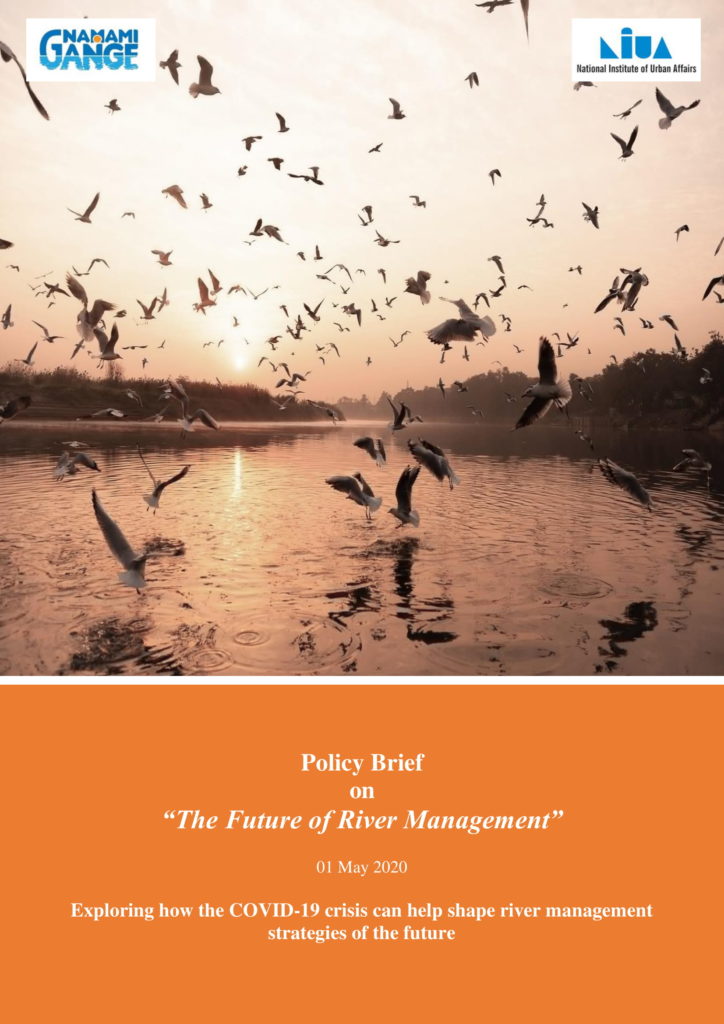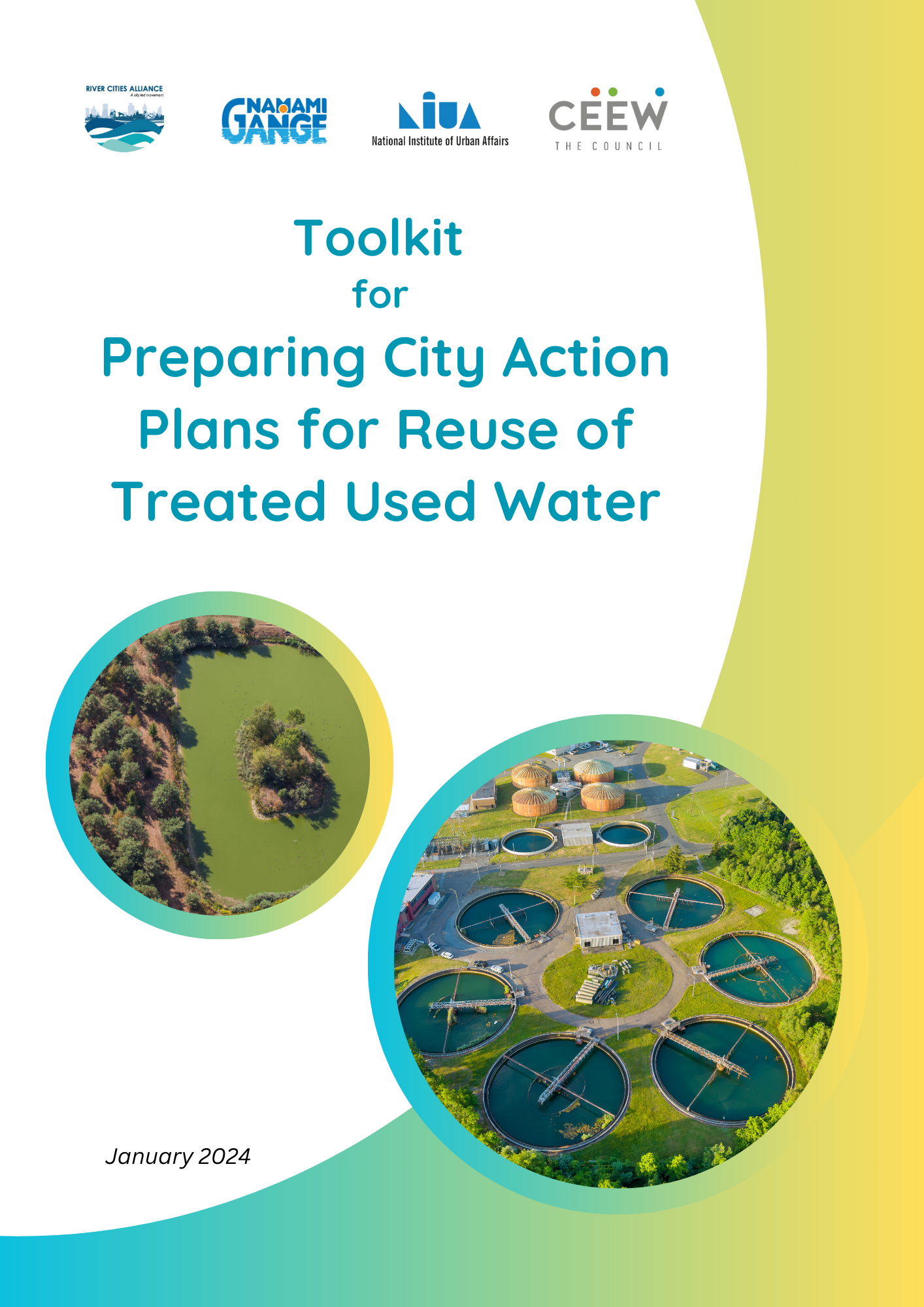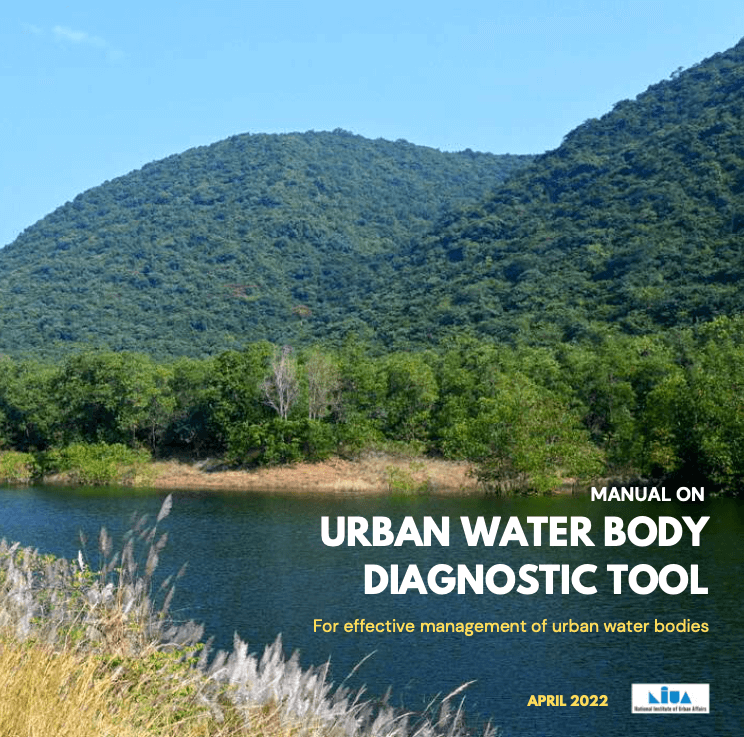Policy and Guidance Documents
Guidelines for Constructed Wetland Systems for Treatment of Sewage in India
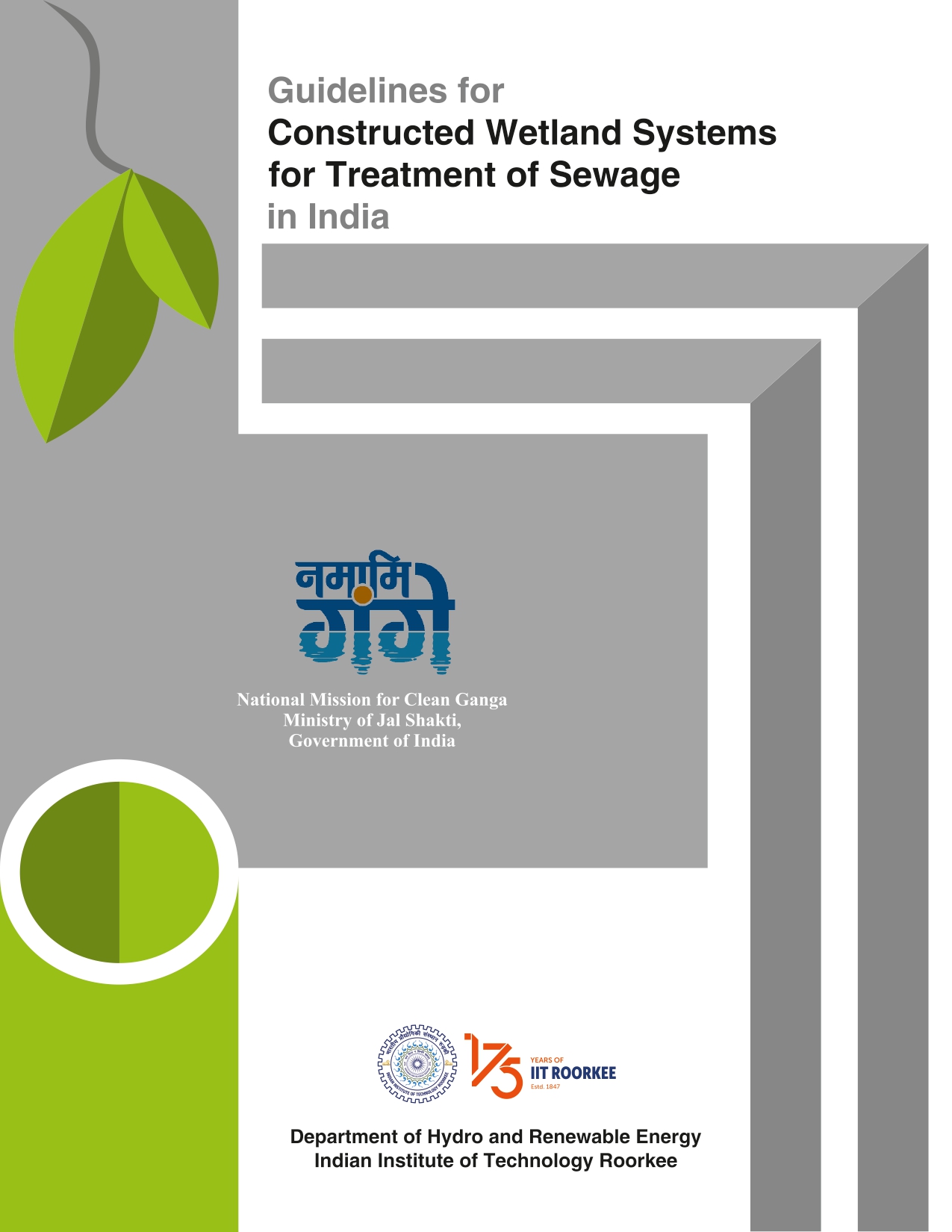
The “Guidelines for Constructed Wetlands for Sewage Treatment in India”, formulated by Hydro and Renewable Energy Department (HRED) of Indian Institute of Technology (IIT), Roorkee under aegis of National Mission of Clean Ganga (NMCG), Ministry of Jal Shakti, Govt of India is now available for all stakeholders and agencies in the water sector. Constructed wetlands (CWs) for sewage treatment holds immense potential in preserving our environment and improving wastewater management. The CWs guidelines have been developed as a point of reference for use by State and Central line agencies, NGOs, Industries, and Consultants in designing CWs as nature-based techniques for sewage management.
The guidelines have been developed after an exhaustive evaluation process conducted by a collaboration of renowned organizations, and by taking into account the inputs from numerous central and state agencies, including National River Conservation Directorate (NRCD), National Mission for Clean Ganga (NMCG), Department of Drinking Water and Sanitation, Ministry of Jal Shakti, Ministry of Housing and Urban Affairs (MoHUA), Central Public Health and Environmental Engineering Organisation (CPHEEO), Central Pollution Control Board (CPCB), State Pollution Control Boards (SPCBs), academic institutions and other agencies.
Strategic Guidelines for “Making River Sensitive Master Plans”
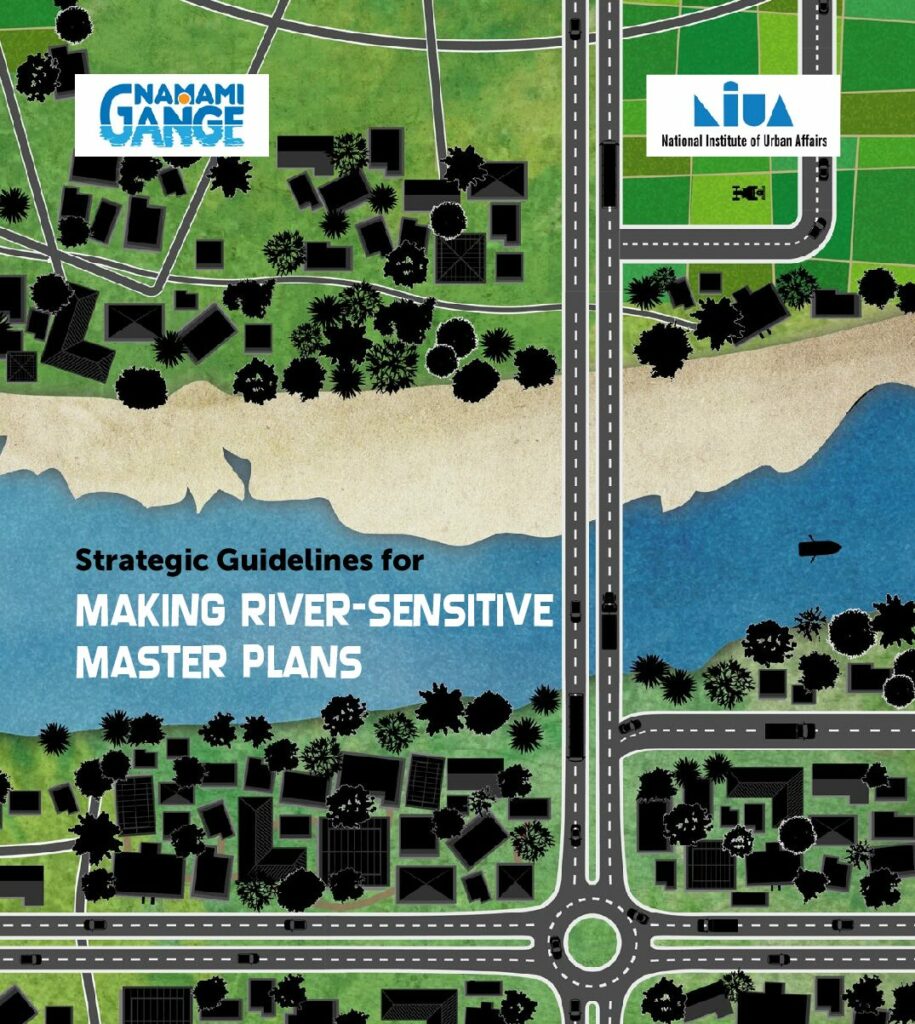
National Institute of Urban Affairs (NIUA) & National Mission for Clean Ganga (NMCG) developed Strategic Guidelines for “Making River-Sensitive Master Plans”. The purpose of this guidance document is to help city planners across the basin, and the country at large, understand how to integrate river-sensitive thinking into a Master Plan.
A Strategic Framework for Managing Urban River Stretches in the Ganga River Basin: URMP
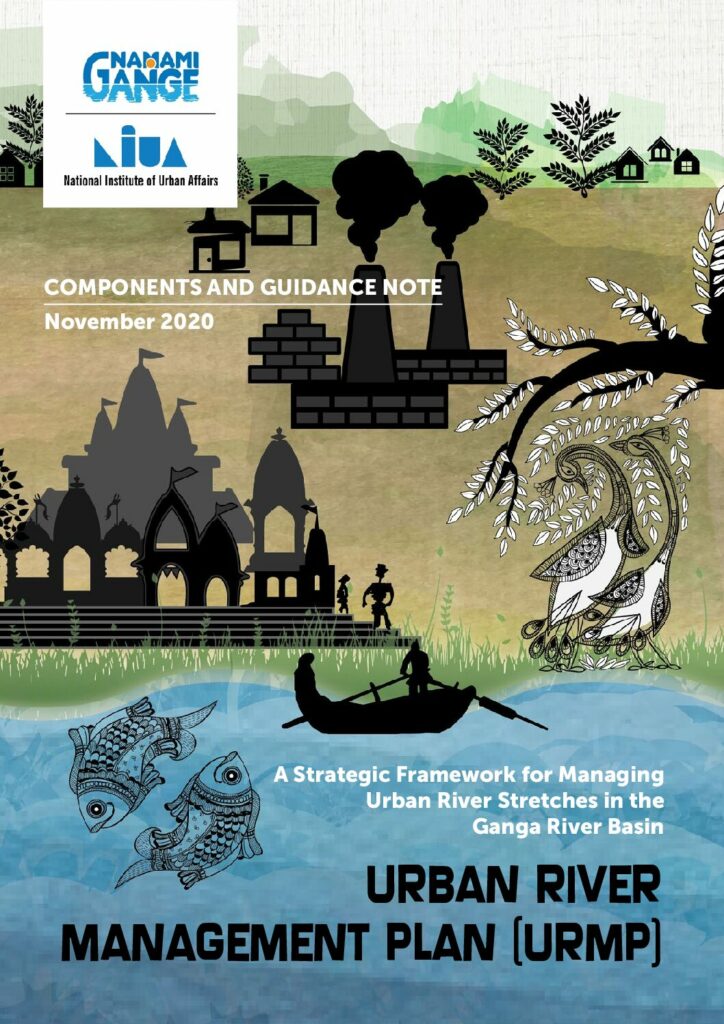
National Institute of Urban Affairs (NIUA) & National Mission for Clean Ganga (NMCG) developed a unique first-of-its-kind strategic framework for managing urban river stretches in the Ganga River Basin called the “Urban River Management Plan”. The framework essentially requires all cities to plan and implement their actions (a mix of planning and project-related interventions) under a ten-point agenda to ensure that the cities act as inter-related operational units working towards a common vision for the river.
Urban River Management Plan – Kanpur
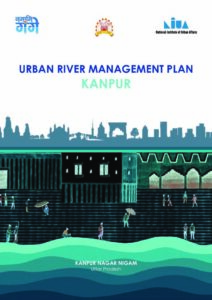
NIUA has handheld the city of Kanpur in preparing its Urban River Management Plan (URMP) of Kanpur as a dedicated strategy for managing the extent of the Rivers Ganga and Pandu—that flow through the city—in an efficient and sustainable manner. It has been developed with the overall vision to ensure the harmonious integration of the Rivers Ganga and Pandu in the development landscape of the city.
A Guide towards River-Sensitive Urban Planning
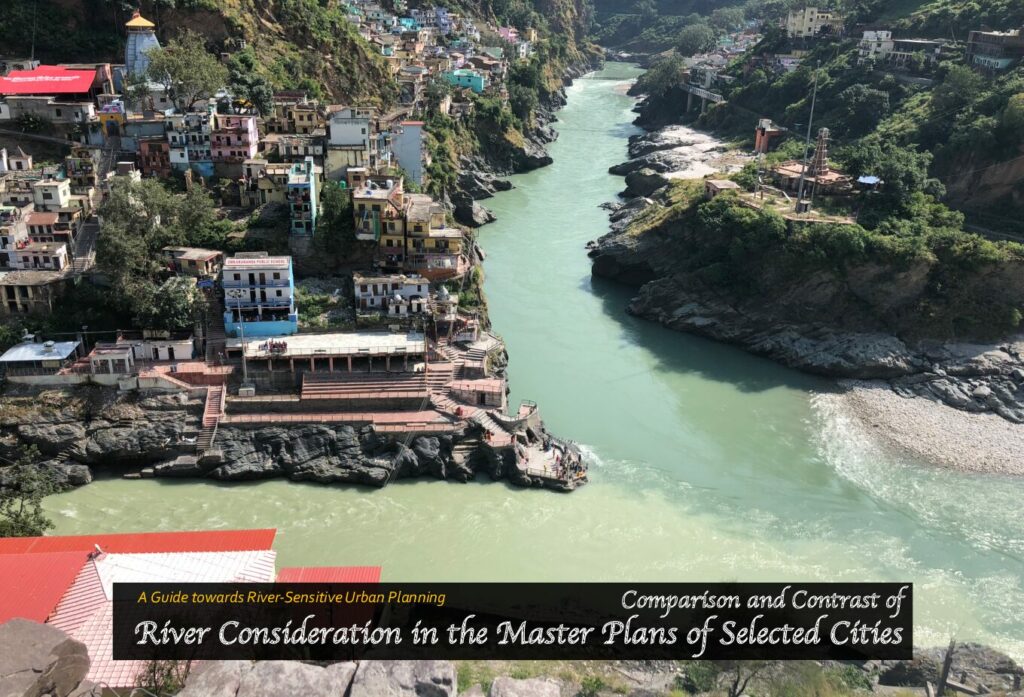
National Institute of Urban Affairs (NIUA) & National Mission for Clean Ganga (NMCG) prepared a knowledge product on ‘Comparison and Contrast of River Consideration in the Master Plans of Selected Cities’. This document shares examples of river-related aspects adopted by Master Plans of various cities.
Innovations in Urban River Management
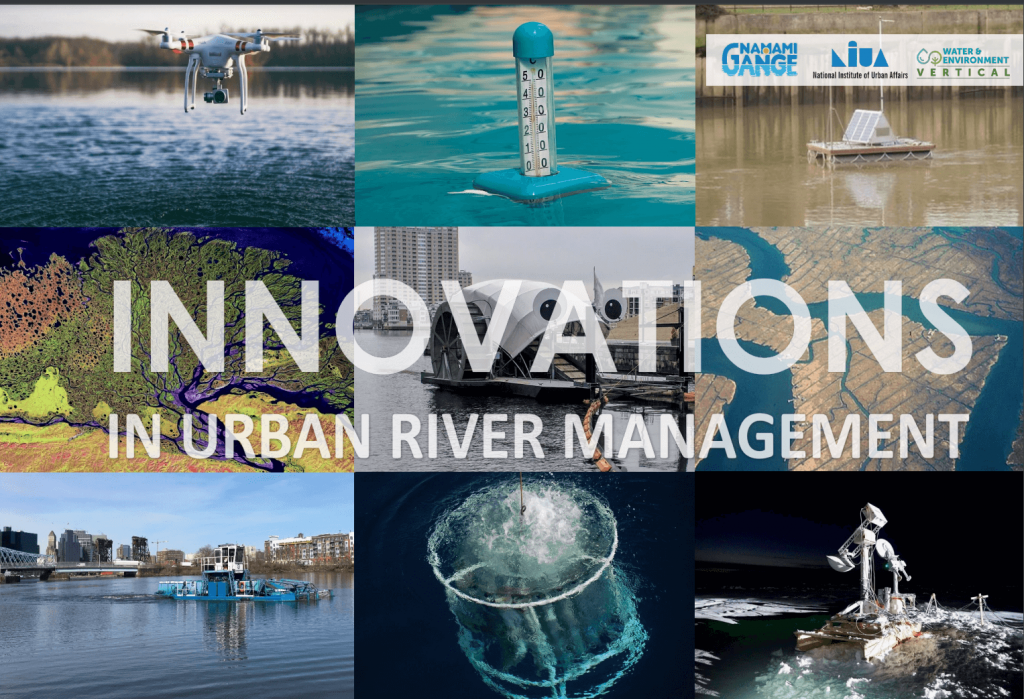
With the advancement of knowledge, percolation of information and technology and increasing awareness among citizens, efforts have already been made across the globe to come up with unique and out-of-the-box initiatives for river management. National Institute of Urban Affairs (NIUA) & National Mission for Clean Ganga (NMCG) prepared a knowledge product on ‘Innovations in Urban River Management’. The purpose of this product is to showcase innovations, especially to city governors and administrators, in order to help them identify possible solutions for local issues. Several innovative case examples from the domain of Information & Technology, Robotics, Artificial Intelligence, Geographic Information Systems, etc. are presented in this product.
A Compendium of River Management Plans – From Managing River Basins to River Specific Projects
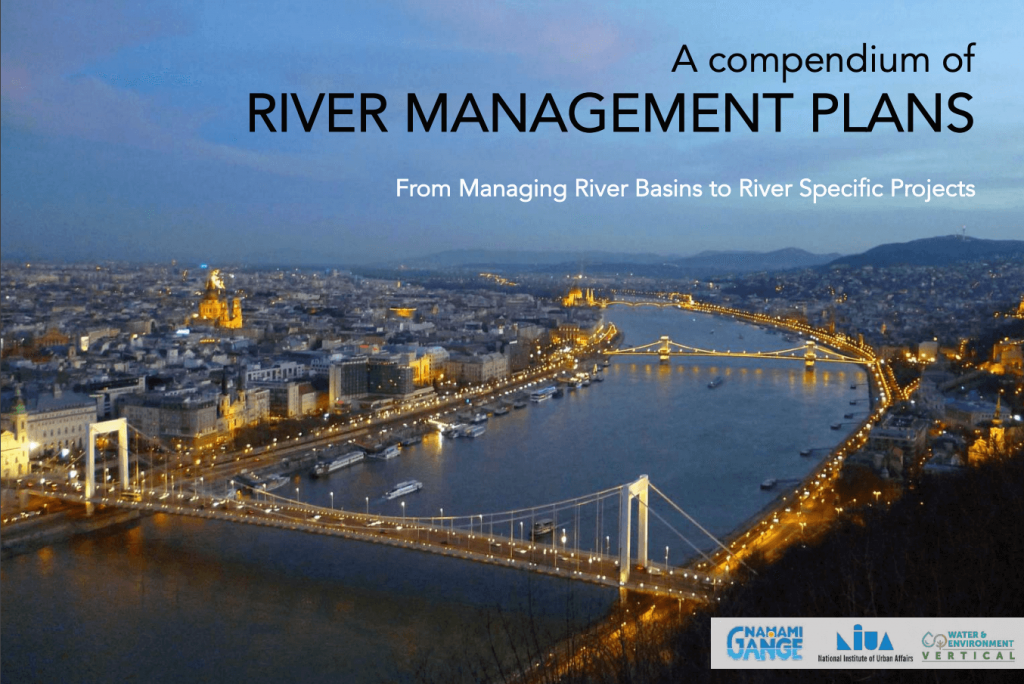
National Institute of Urban Affairs (NIUA) & National Mission for Clean Ganga (NMCG) prepared a knowledge product titled ‘A Compendium of River Management Plans’. This product tries to capture some of the best practices adopted for effective river management across the globe, while emphasizing the need of comprehensive river management for addressing the issues faced by river cities in India. The case examples incorporated in this Knowledge Product highlight the globally prevalent river management practices, with a focus on key strategies for – ecological restoration of the river (Environment); enabling the re-connect of people with the river (Social) and; boosting the livelihoods of people associated with river activities (Economy). An assessment of such attempts can provide an opportunity to adopt and replicate them.
Eco-friendly Interventions for Riverfront Development
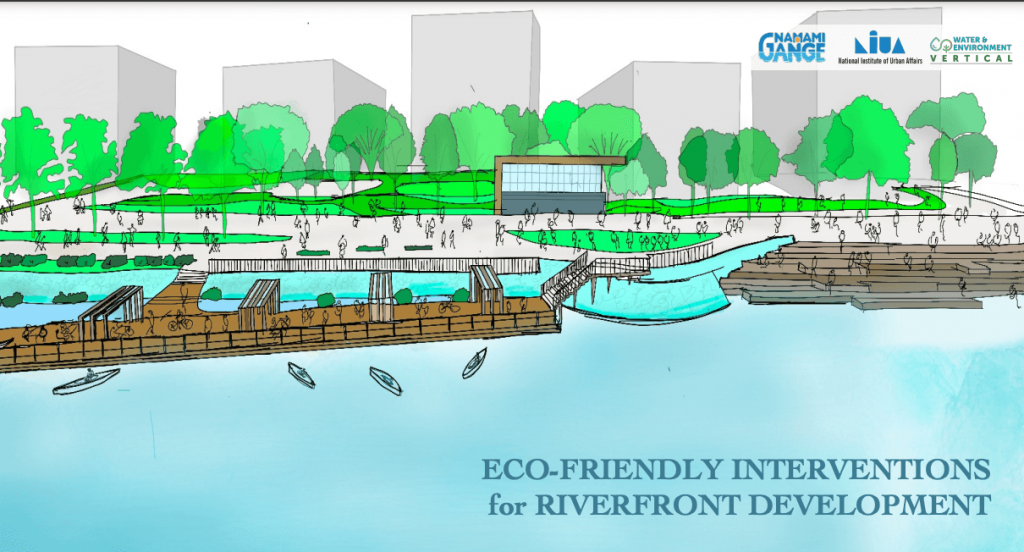
Rivers play an intrinsic role in community engagement. They have vast potential for activating a city’s social, economic as well as cultural life. River edges, owing to their natural character and landscape, are ideal locations for exploring the potential of ecologically developed recreational areas within the city. National Institute of Urban Affairs (NIUA) & National Mission for Clean Ganga (NMCG) prepared a knowledge product on ‘Eco-friendly Interventions for Riverfront Development’. This knowledge product showcases a set of best practices, with eco-friendly interventions and specific elements, that can be adopted for environmentally sensitive, economically viable and socially cohesive development of the urban riverfronts. A mix of practices can be adopted together as per the local needs, to achieve the desired goal of developing eco-sensitive riverfronts, which also improves the social connect while maximising the economic potential of the river.
Celebrating the Intangible Value of Water
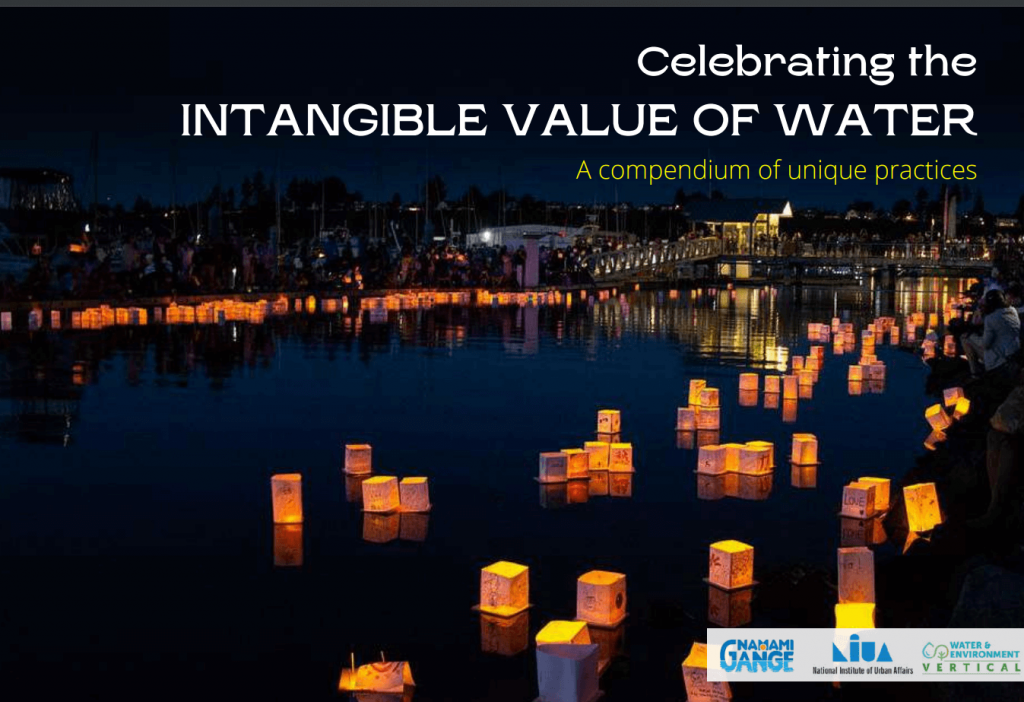
Perhaps no other natural resource is as significant as water in the path to sustainable development. Achieving water security is, therefore, a top priority for governments across the world, through various policies, plans, and projects. It is important that such initiatives acknowledge and leverage on the intangible value of water as a means to enhance the overall water security of the region. The intangible value of water is found in almost every country through unique cultures, traditions, festivals, and rituals. This underscores the intrinsic place of water in society, far beyond merely being a source of meeting basic human needs. As the adage goes, what we cherish, we value, and what we value, we protect. Leveraging on the intangible value of water can, therefore, serve as a sound strategy to ensure its judicious use. National Institute of Urban Affairs (NIUA) & National Mission for Clean Ganga (NMCG) prepared a knowledge product on ‘Celebrating the Intangible Value of Water’. This compendium highlights unique examples from different corners of the world where the intangible value of water is celebrated through customs, traditions, festivals, and beliefs.
Harnessing the ECONOMIC POTENTIAL of a RIVER
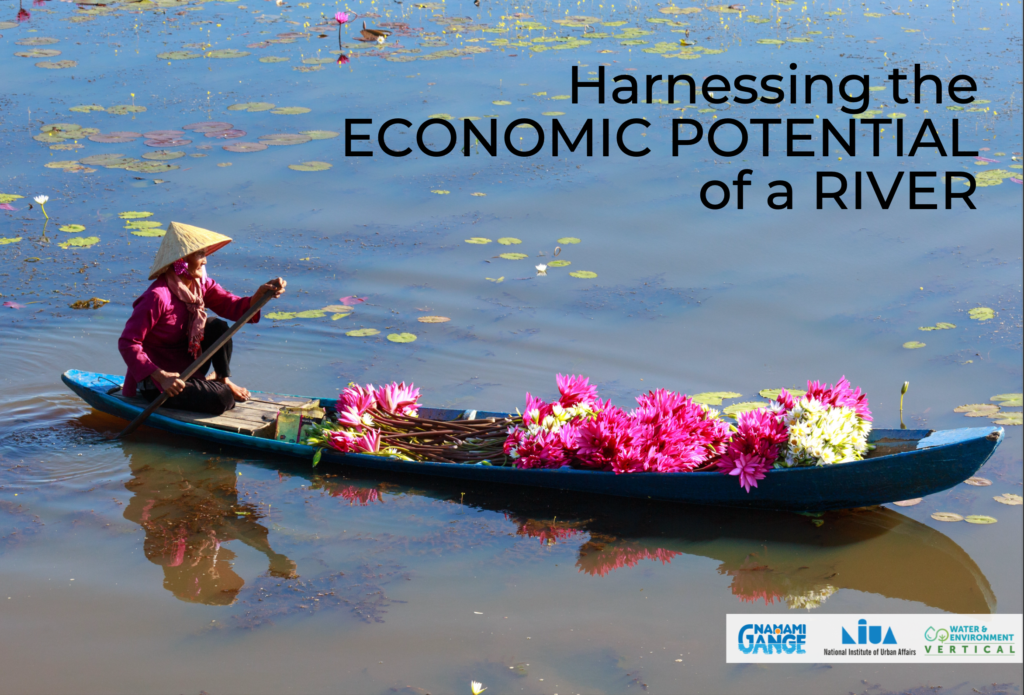
National Institute of Urban Affairs (NIUA) & National Mission for Clean Ganga (NMCG) prepared a knowledge product on ‘Harnessing the ECONOMIC POTENTIAL of a RIVER’. This knowledge product is a compilation of river-related activities from across the world, that have helped in leveraging the economic potential of the river ecosystems.
River-Sensitive Sectoral Strategies in the Master Plan
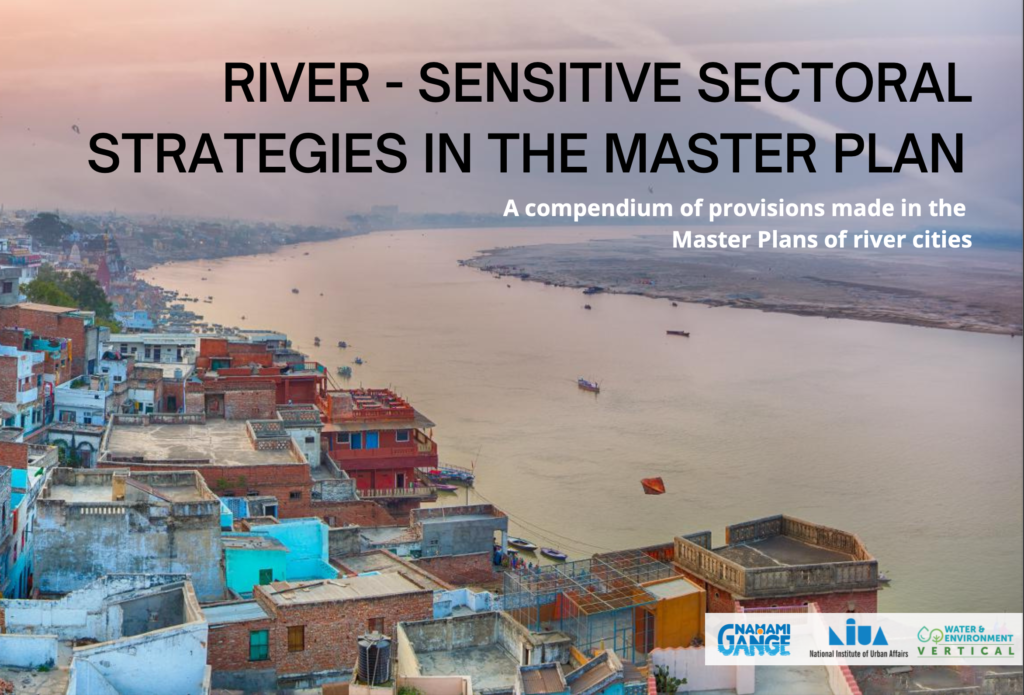
National Institute of Urban Affairs (NIUA) & National Mission for Clean Ganga (NMCG) prepared a knowledge product on ‘River-Sensitive Sectoral Strategies in the Master Plan – a compendium of provisions made in the Master Plans of river cities’. This document is a compilation of sectoral provisions made in the Master Plans of river cities across the globe, for shelter, mobility, infrastructure, heritage or economy, that have an indirect connection with urban river management.
Celebrating 75 River Initiatives of the River Cities Alliance (RCA)
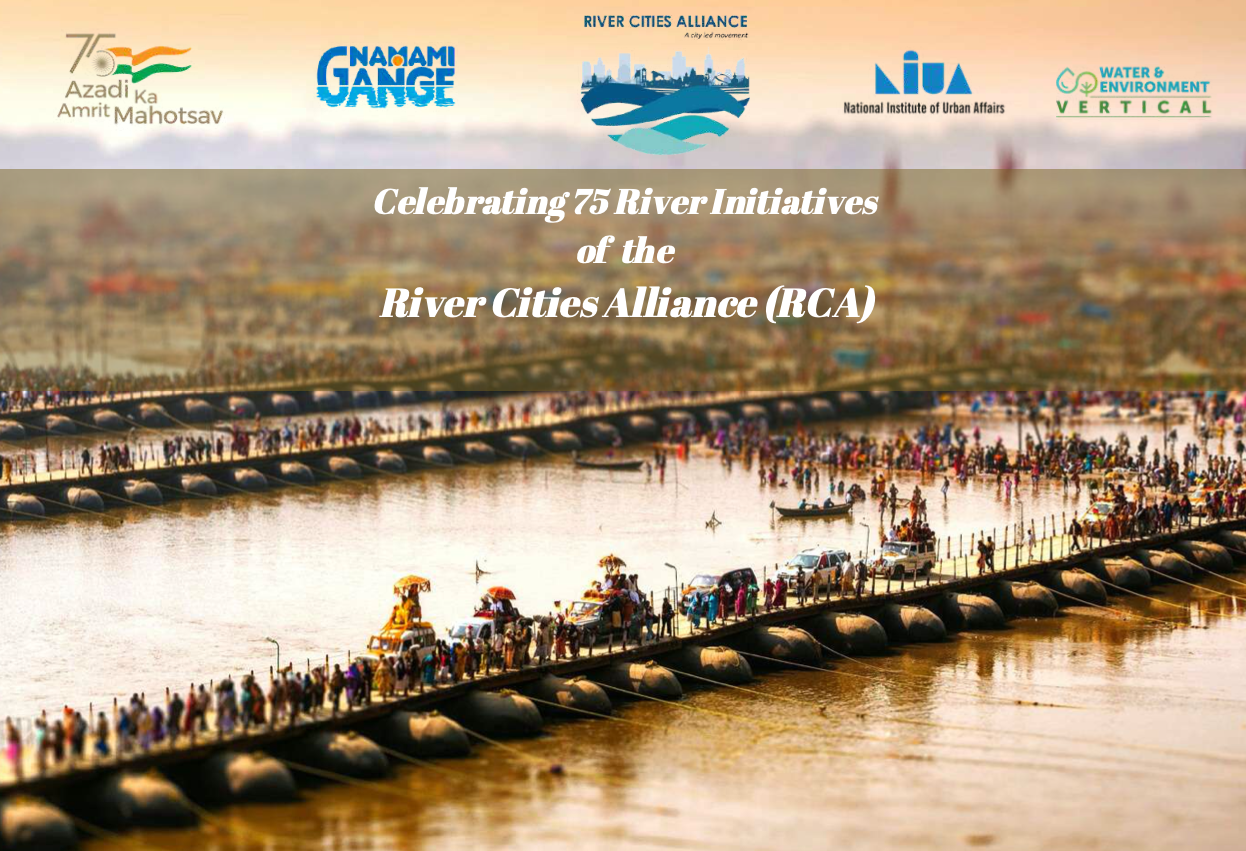
The National Institute of Urban Affairs (NIUA) and the National Mission for Clean Ganga (NMCG) have prepared a compendium on ‘Celebrating 75 River Initiatives of the River Cities Alliance (RCA).
The compendium presents seventy-five examples of river-related initiatives undertaken by alliance member cities. The budgets for these interventions are mostly from the ULB-owned funds, national missions like SBM, AMRUT and NMCG. Several interventions are funded through CSR contributions.


